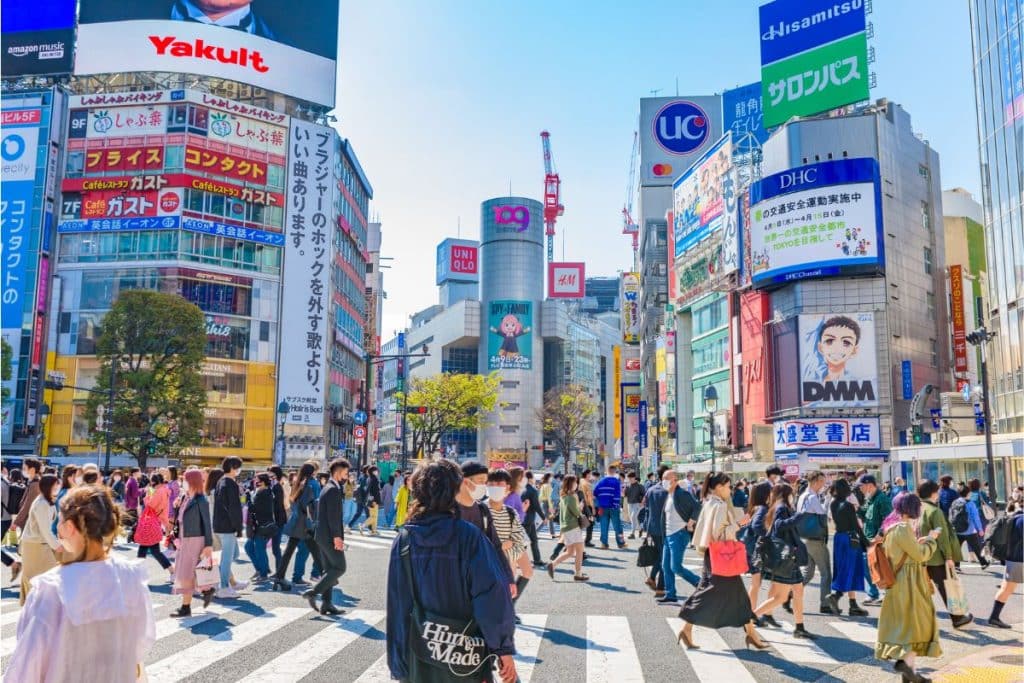Japan is prepared to issue visas for digital nomads from the end of March 2024. Applicants must earn more than 10 million Japanese yen ($68,300) annually or more at the time of application. Applicants do not need to be employed by another company to qualify for this offer as it is open to self-employed and freelancers.
Japan is a true haven for remote workers, offering an abundance of tourist destinations, modern technology and an affordable cost of living.
Countries covered and criteria
Applicants for the Japanese digital nomad visa must be citizens of a country that has a tax treaty with Japan or be awarded Visa exemption. The United States of America, Australia and Singapore are among the 49 countries and territories on this list. Applicants can now live and work remotely in Japan for six months after being approved, up from the 90 days that visa-free short stays currently allow. Spouses and children are allowed to travel with these digital nomads.
It is important to remember that remote workers with a digital nomad visa to Japan will not be considered citizens of the nation and will not be allowed to apply for a residency certificate or rent long-term housing.
Each country has its own regulations regarding the digital nomad visa program, including length of stay. For example, South Korea allows a two-year stay, while Taiwan allows digital nomads a three-year stay.
Global digital nomad movement
More than 35 million people worldwide identify as digital nomads, generating an economic impact of approximately $787 billion, as reported by the US-based travel site A brother abroad.
The trend of living abroad and working remotely is gaining popularity. Governments around the world are promoting this shift to promote tourism and stimulate local innovation.
Currently, more than 50 countries offer digital nomad visas, with Japan planning to introduce similar programs, although lengths of stay vary by country, ranging from two to three years, with options for permanent residency in some cases.
Best places for digital nomads in Japan
Fukuoka
Fukuoka is Japan’s emerging hotspot for digital nomads.
In October 2023, Fukuoka attracted digital nomads worldwide to a promotional event that proved to be very successful and drew a lot of attention to this seaside resort.
The event offered co-working spaces in hotels and opportunities for cultural exchanges with locals, such as plant potting and traditional dance classes, underscoring the city’s vibrant energy and global outreach efforts led by city official Yokoyama Yuichi.
Tokyo

Nomadlist.com’s analysis of city check-ins over the past two years shows significant growth in the remote-working population, especially in Tokyo. In 2022, Tokyo saw a 369% increase in the number of remote workers, followed by a 252% increase last year, making it the fastest growing destination for digital nomads in 2023.
Tokyo’s appeal as a remote working center is attributed to its unique combination of creative architecture, historic sites, vibrant culture and culinary excellence.
Okinawa

Okinawa, with its serene beaches, subtropical climate and rich cultural heritage, is becoming an attractive destination for digital nomads looking for a work-life balance.
The island offers a relaxed lifestyle complemented by modern amenities and high-speed internet, making it an ideal environment for remote working.
Additionally, Okinawa’s welcoming community and abundance of coworking spaces meet the needs of digital professionals looking for a mix of productivity and inspiration.




